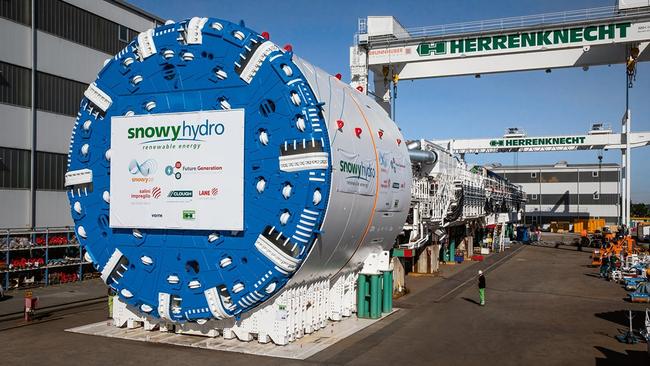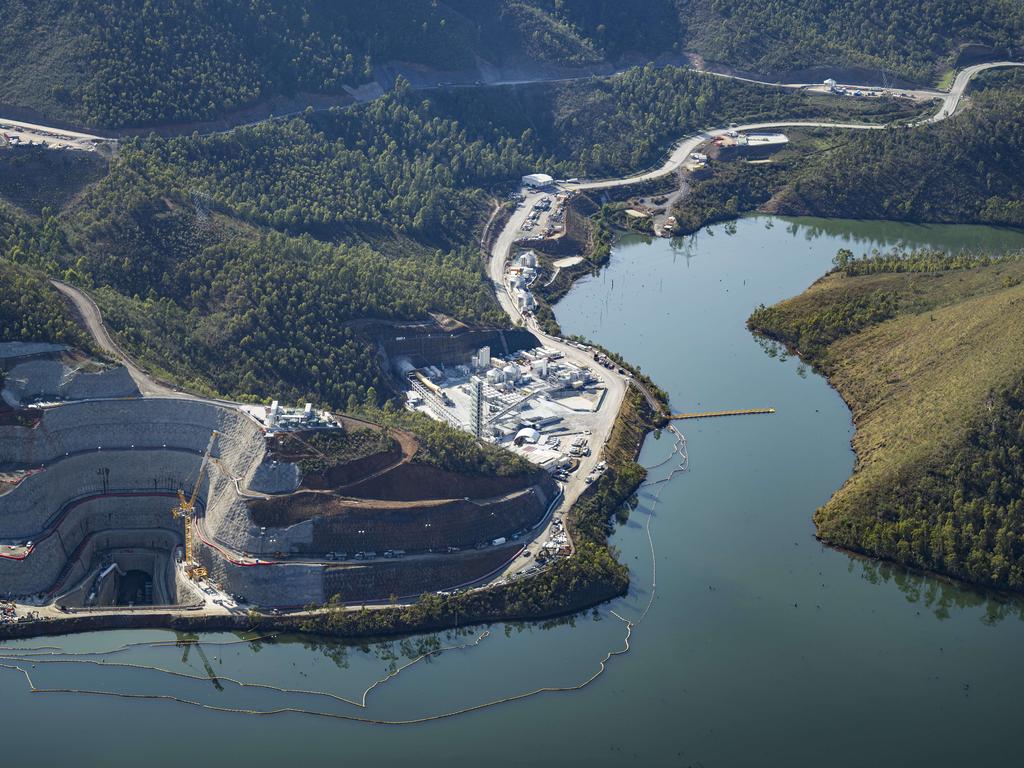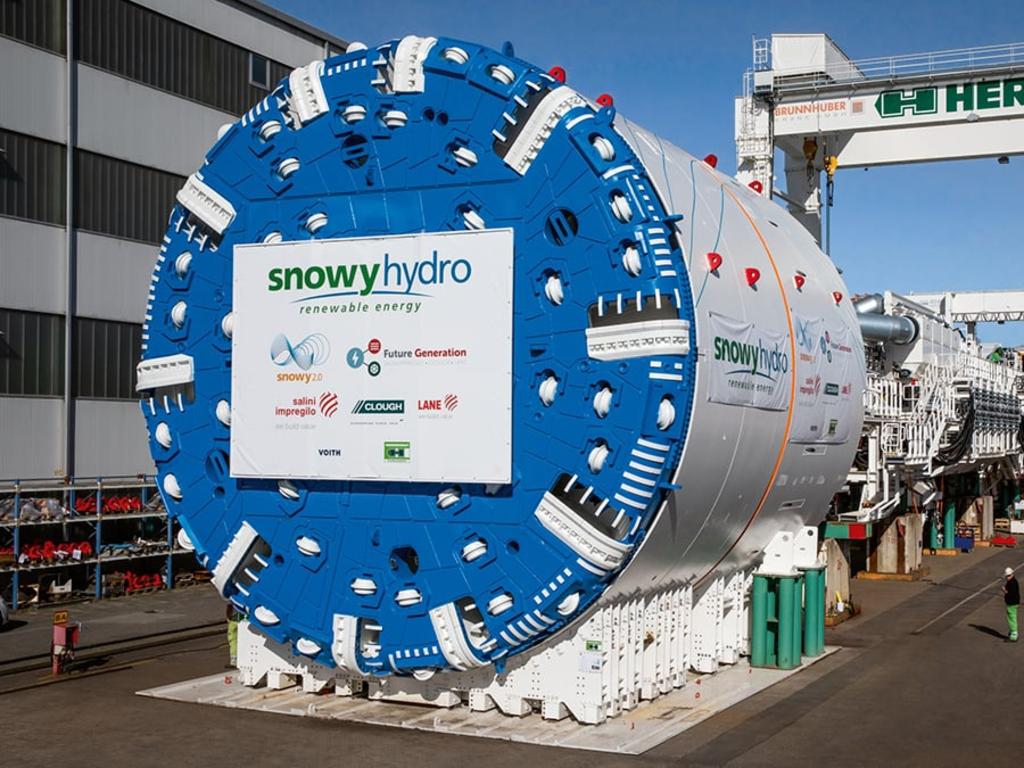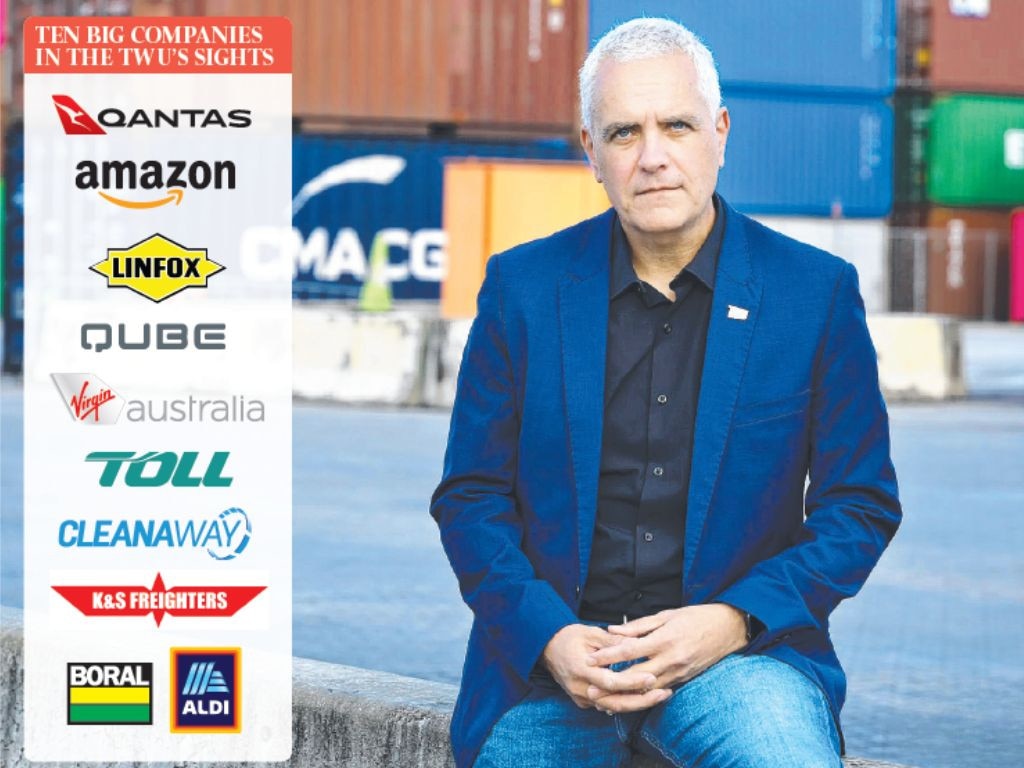‘It’s not a prisoner of war camp’: union fury at Snowy lock-in
Snowy Hydro 2.0 has been accused of turning the project into a workers’ jail.

Snowy Hydro 2.0 has been accused of turning the project into a jail, after telling striking workers they will effectively be confined to their rooms and face disciplinary action if they try to leave the site when they stop work for 24 hours.
Ahead of workers walking off the job on Wednesday, Future Generation Joint Venture deputy project director Kevin Dunning told them site access would be restricted from 5pm on Tuesday until 6am on Thursday.
In a notice obtained by The Australian, he issued instructions to workers taking the industrial action, telling them that “leaving site early without authorisation will result in disciplinary action”.
“Do not attend work fronts or operational areas,” he wrote.
“Participants must remain in designated camp areas only. Crib areas are to be used only by those actively working.”
He said workers must remain on site until their scheduled fly-out; departures must occur via project buses only, and company vehicles and assets were not to be used during the action.
He said only personnel holding a written authorisation would be permitted to enter or exit the site, and security would be checking vehicle occupants for contraband
“Individuals attempting to exit site via unauthorised vehicles will be refused access, reported for breach of site protocols and referred to the industrial relations team for further action,” he wrote.
Australian Workers Union NSW secretary Tony Callinan said he told Mr Dunning that “he is not running a jail, it is a construction site”.
“It’s not a prisoner of war camp. It’s not a jail,” he later told The Australian. “It’s extreme overreach. It appears to me, based on the content of these communications, that they think they have the right to detain people on the construction site.
“The workers are exercising their lawful right to take protected industrial action and the project should conduct themselves in a reasonable manner and facilitate the stoppage of work and not try to confine people to their room as punishment.
“We won’t be accepting any disciplinary action for anyone who wants to exercise their right to leave the project on a day off while they’re engaging in industrial action.”
Mr Callinan said he accepted the project had obligations to keep the site safe “but if workers want to leave the project while not being paid and go out for the day, they should be able to”.
“It’s obscene. I have never heard anything like it in my life,” he said. “I’m not surprised at all. I told the project director this is just another example of the project’s complete and utter incompetence. They have no idea how to deal with their employees.
“It flies against everything in the community. You can’t hold someone somewhere against their will. I don’t think it would be acceptable in any culture, let alone being un-Australian. I don’t think there are too many parts of the world where people would be refused to leave their accommodation because they are participating in protected lawful industrial action.”
Mr Callinan said the vast majority of the 900 workers currently on the project would be going on strike but would be “effectively confined to the camp quarters”.
“They’re not actually working,” he said. “The company doesn’t own them when they’re not working. They’re exercising their right to take protected industrial action so I’m not sure how they’re going to get disciplined for leaving the site early.
“I don’t expect the project to roll out the red carpet and run fleets of buses doing day trips but this is just the polar opposite saying people will not be permitted to leave the site and if they leave the site, they won’t be allowed back in and will be reported.”
Mr Dunning wrote the requirements were “to ensure a secure and compliant work environment” during the period of industrial action.







To join the conversation, please log in. Don't have an account? Register
Join the conversation, you are commenting as Logout